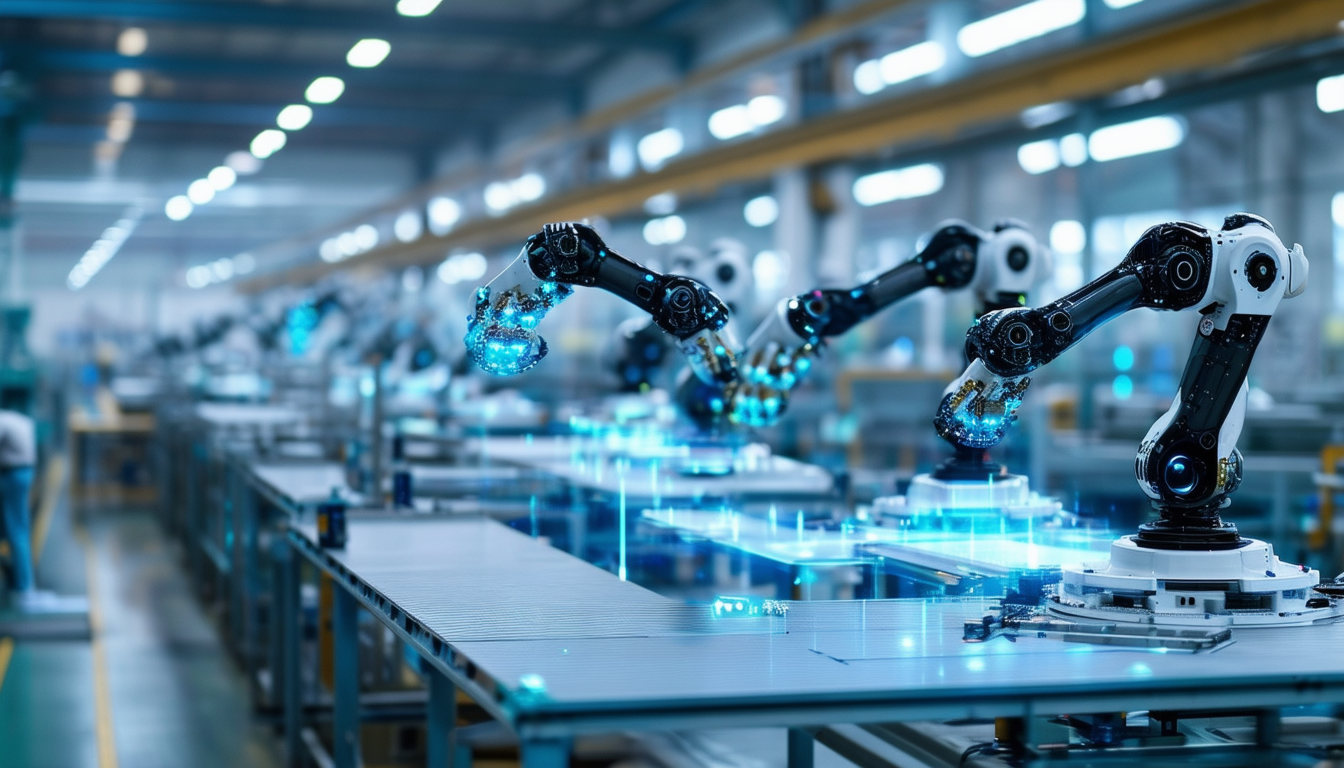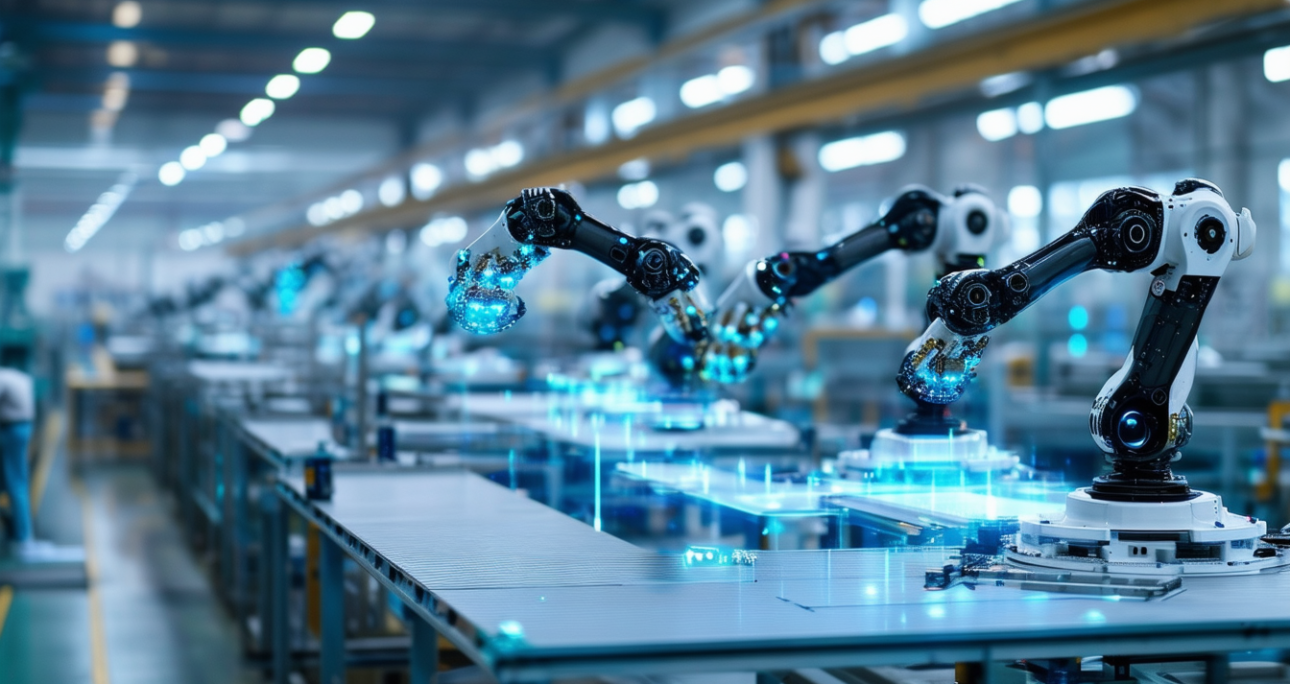
Artificial Intelligence (AI) is revolutionizing the manufacturing industry by enhancing efficiency, precision, and innovation.

The Rise of AI in Manufacturing
Artificial Intelligence (AI) has become a driving force in the manufacturing sector, offering transformative capabilities that were once the realm of science fiction. AI technologies such as machine learning, computer vision, and natural language processing are now integral to modern manufacturing processes. These technologies enable machines to learn from data, improve over time, and perform tasks with a precision that surpasses human abilities.
The adoption of AI in manufacturing is not just a trend but a strategic necessity. Companies that leverage AI are better positioned to respond to market demands, optimize production processes, and maintain a competitive edge. As AI continues to evolve, its applications in manufacturing will only expand, making it a cornerstone of the industry’s future.
Enhancing Operational Efficiency with AI
One of the most significant benefits of AI in manufacturing is its ability to enhance operational efficiency. AI-driven systems can analyze vast amounts of data from various sources, such as sensors, machines, and production lines, to identify patterns and anomalies. This real-time analysis allows for more informed decision-making and quicker responses to potential issues.
AI can also automate routine tasks, freeing up human workers to focus on more complex and strategic activities. For instance, AI-powered robots can handle repetitive and physically demanding tasks with consistent accuracy and speed, reducing the likelihood of human error and increasing overall productivity. As a result, manufacturers can achieve higher output levels with fewer resources, ultimately leading to cost savings and improved profitability.
Predictive Maintenance: Reducing Downtime and Costs
Predictive maintenance is another area where AI is making a substantial impact. Traditional maintenance approaches are often reactive, addressing issues only after they occur, which can lead to costly downtime and repairs. In contrast, AI-driven predictive maintenance uses data from sensors and equipment to forecast when a machine is likely to fail, allowing for proactive maintenance interventions.
By predicting potential failures before they happen, manufacturers can schedule maintenance during planned downtimes, minimizing disruptions to production. This not only reduces unplanned downtime and associated costs but also extends the lifespan of equipment, resulting in significant long-term savings. Predictive maintenance powered by AI ensures that machines operate at optimal efficiency, enhancing overall productivity.
Quality Control and Assurance Through AI
Quality control is a critical aspect of manufacturing, and AI is revolutionizing how it is conducted. AI systems equipped with computer vision can inspect products at various stages of production with incredible precision, identifying defects that may be missed by human eyes. These systems can analyze images in real-time, ensuring that only products meeting stringent quality standards move forward in the production process.
Moreover, AI can analyze historical quality data to identify trends and root causes of defects, enabling manufacturers to implement corrective actions and improve processes. This leads to higher-quality products, reduced waste, and increased customer satisfaction. AI-driven quality control ensures that manufacturers can consistently deliver products that meet or exceed expectations, solidifying their reputation in the market.
Future Trends: AI’s Growing Influence in Manufacturing
As AI technology continues to advance, its influence in manufacturing will only grow. Future trends include the increased integration of AI with the Internet of Things (IoT), enabling even more sophisticated data collection and analysis. Smart factories, where AI systems autonomously manage production processes, are on the horizon, promising unprecedented levels of efficiency and flexibility.
Additionally, AI will play a crucial role in advancing sustainable manufacturing practices. By optimizing resource use and reducing waste, AI can help manufacturers minimize their environmental impact while maintaining profitability. The potential applications of AI in manufacturing are vast, and as the technology evolves, it will unlock new opportunities for innovation and growth in the industry.

